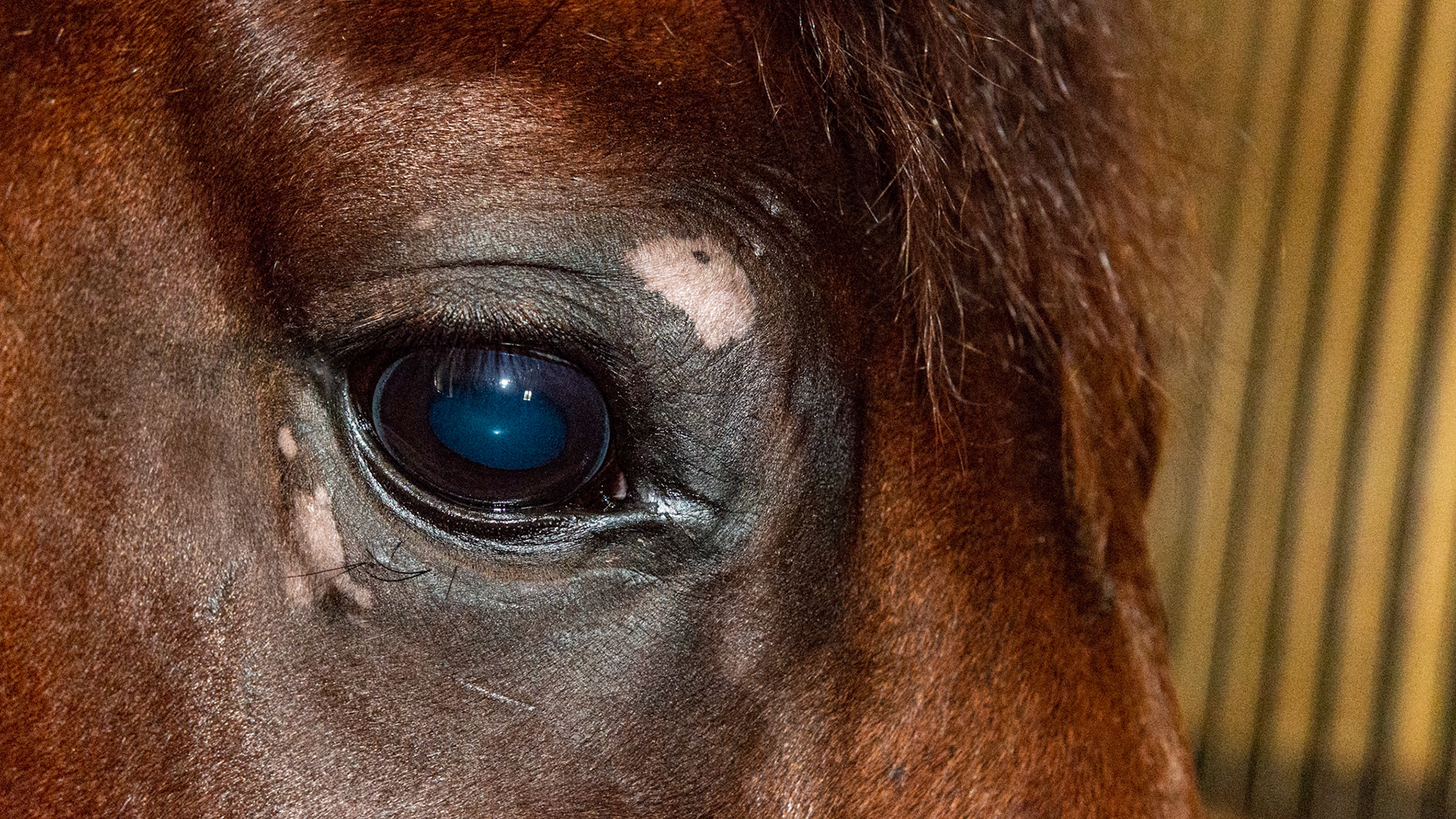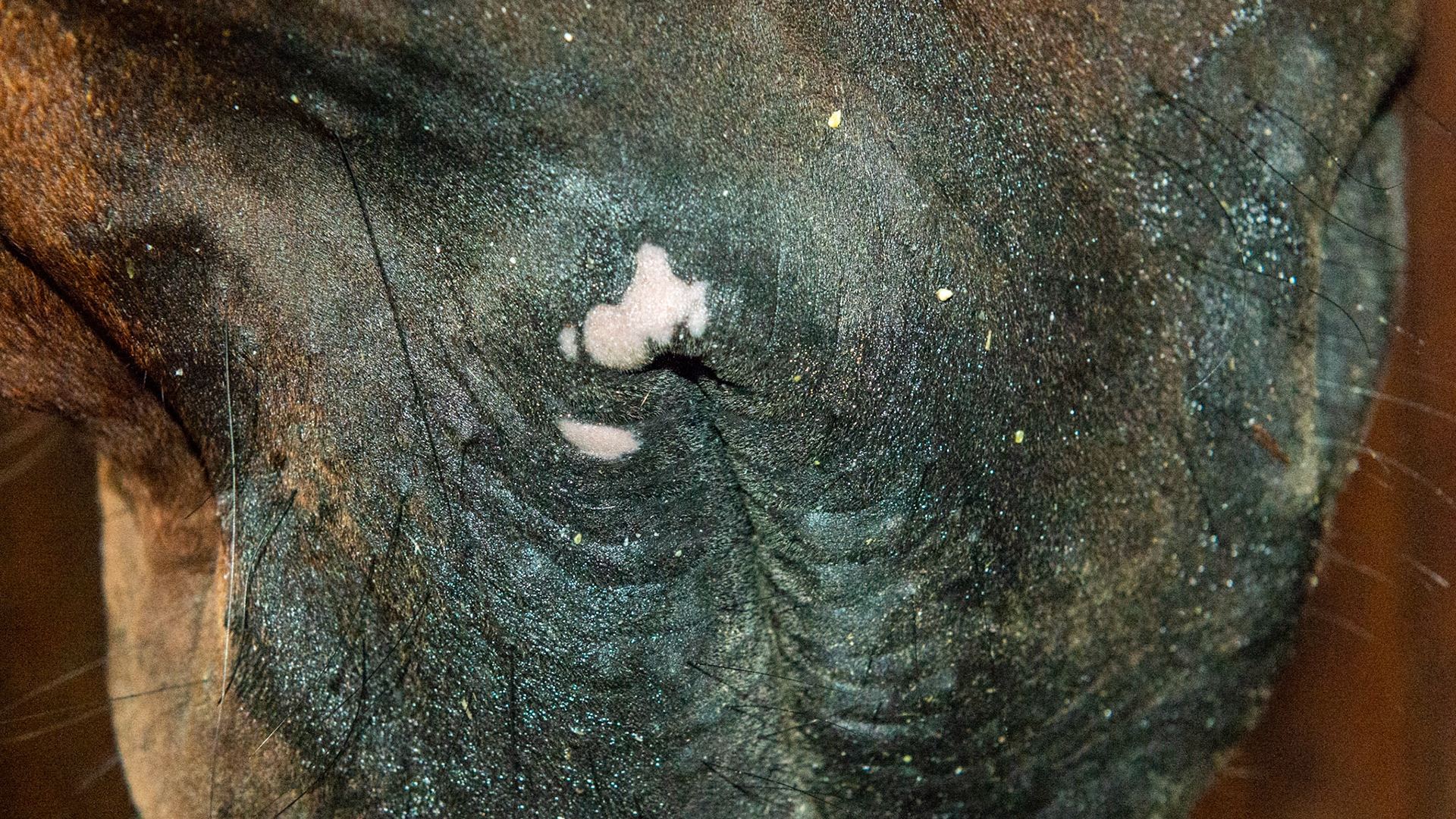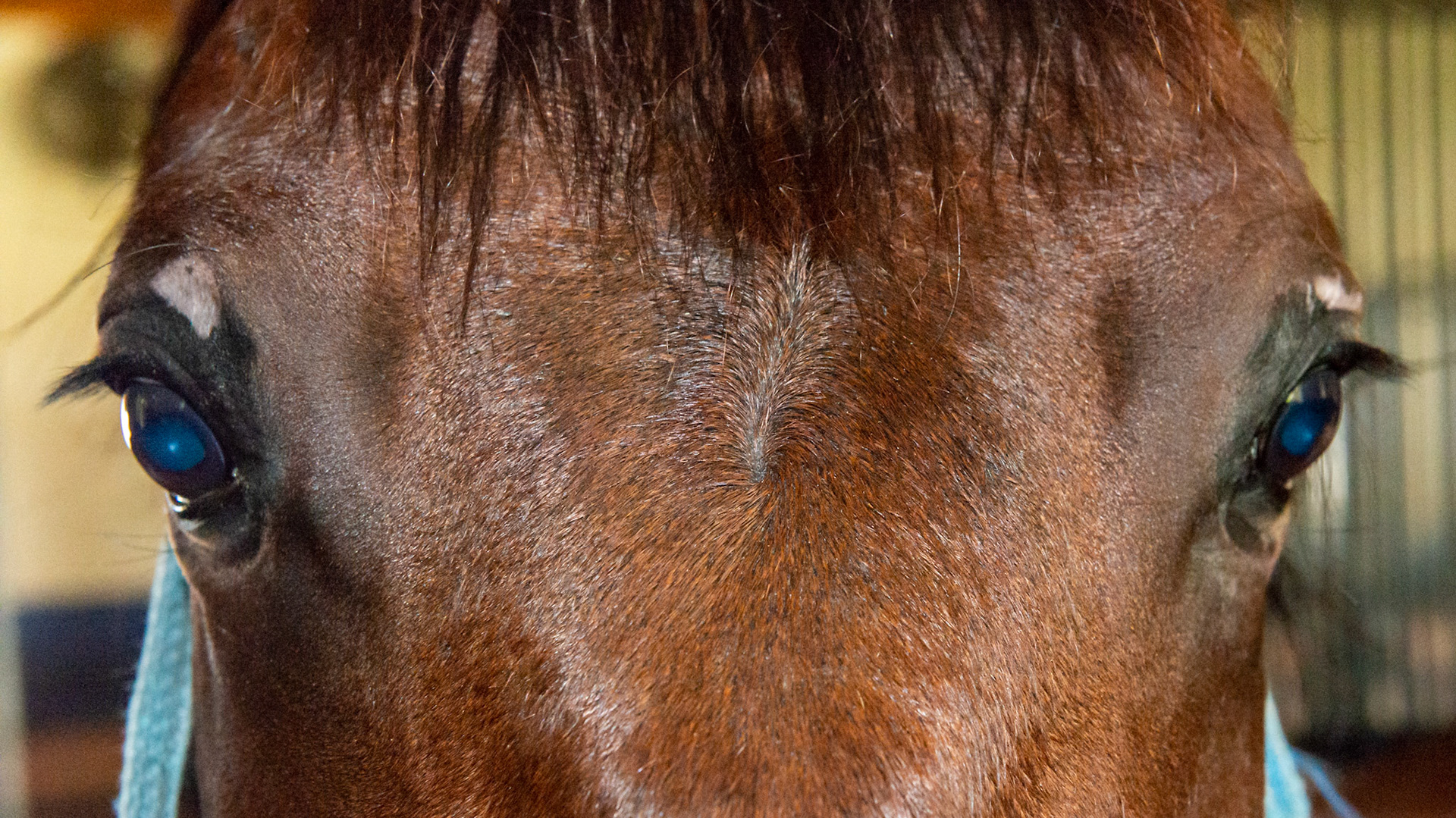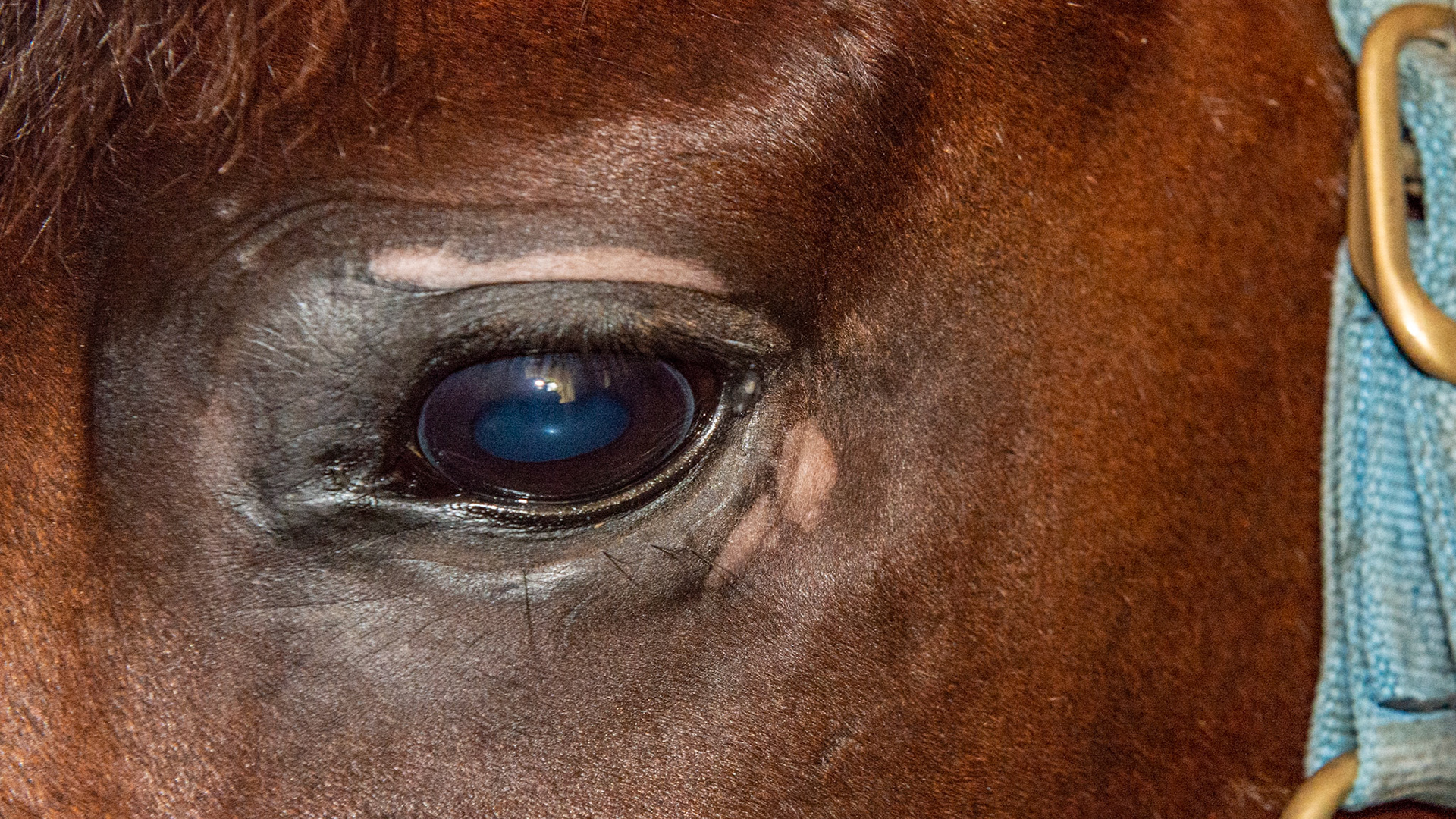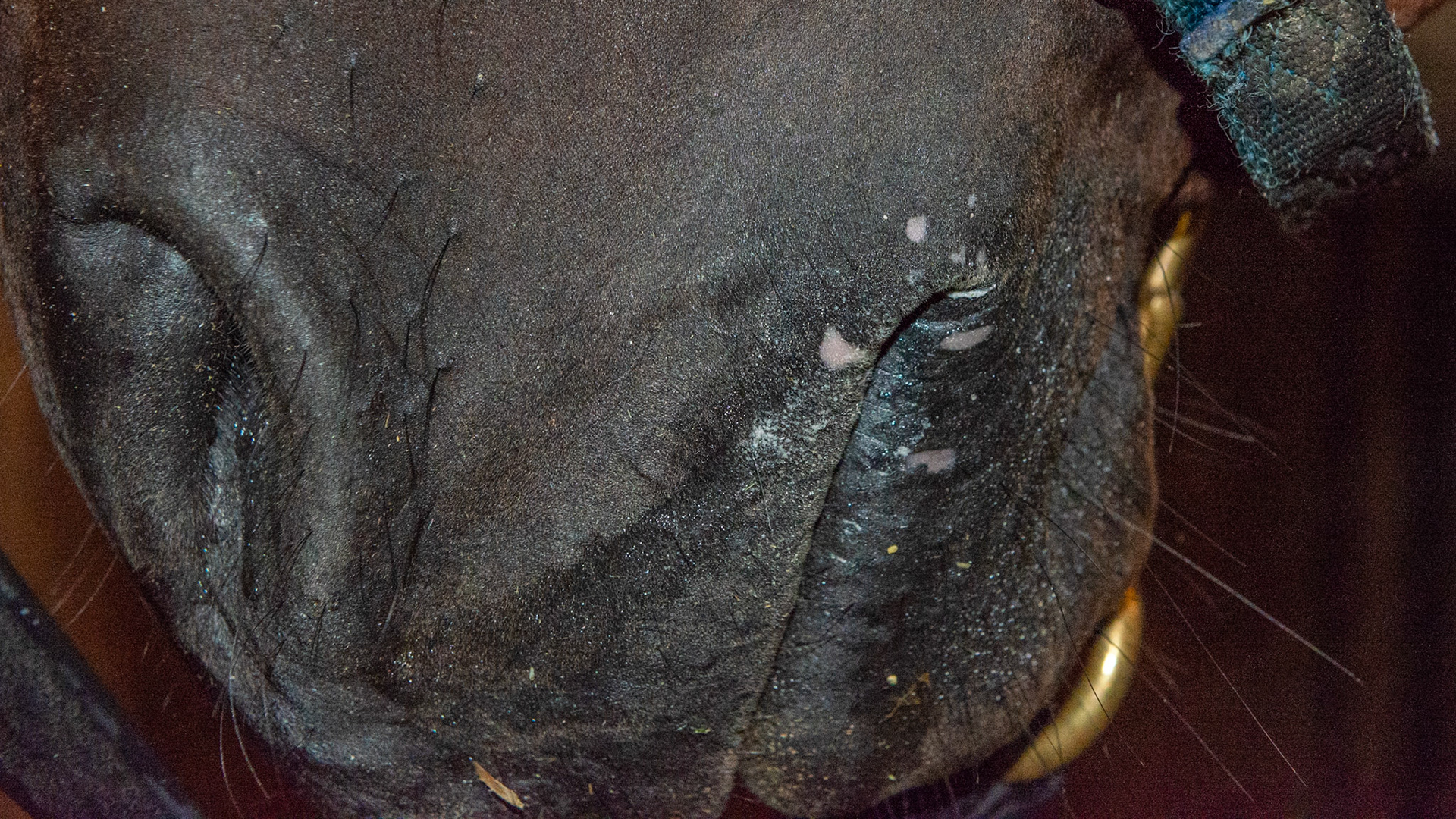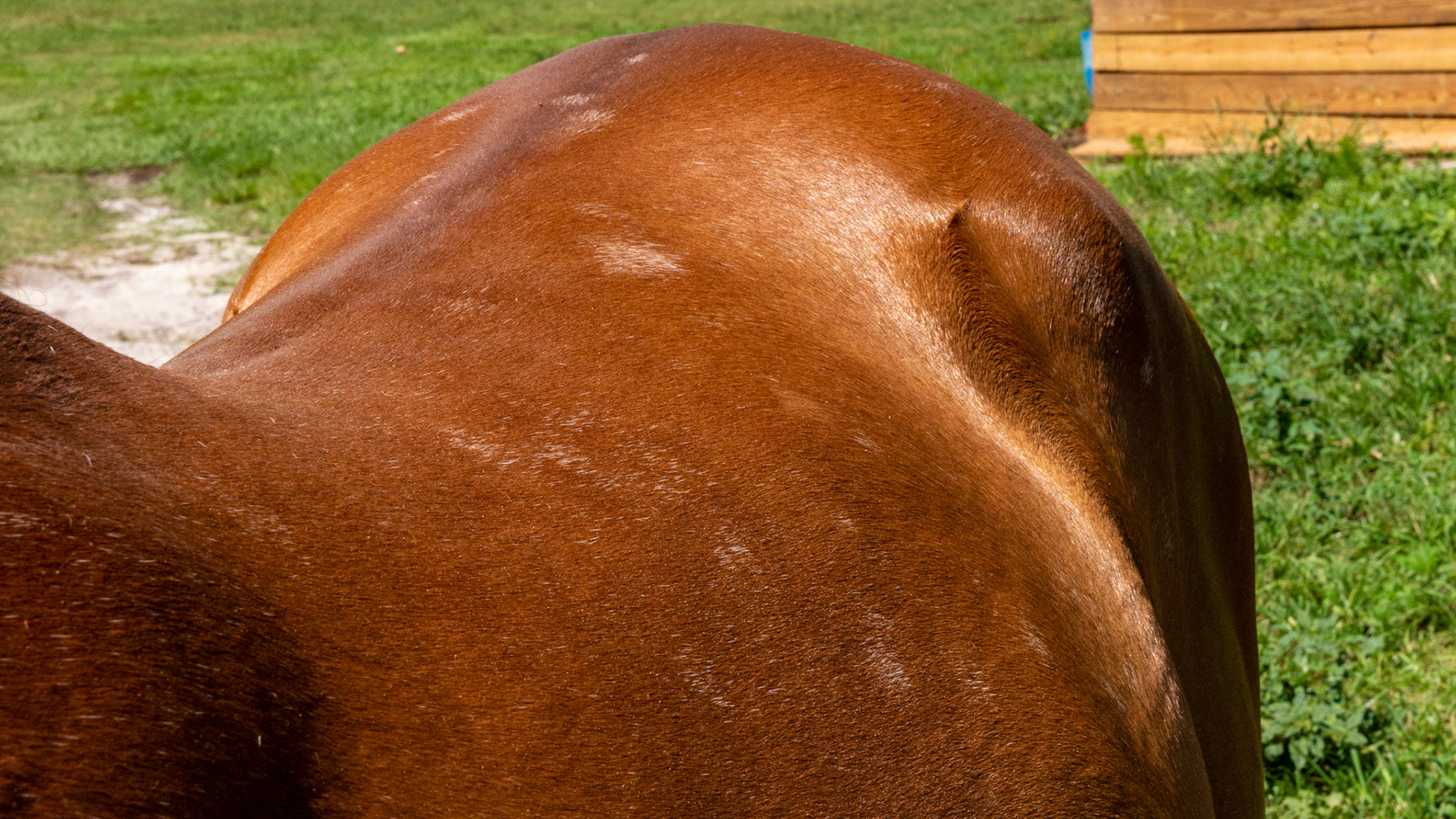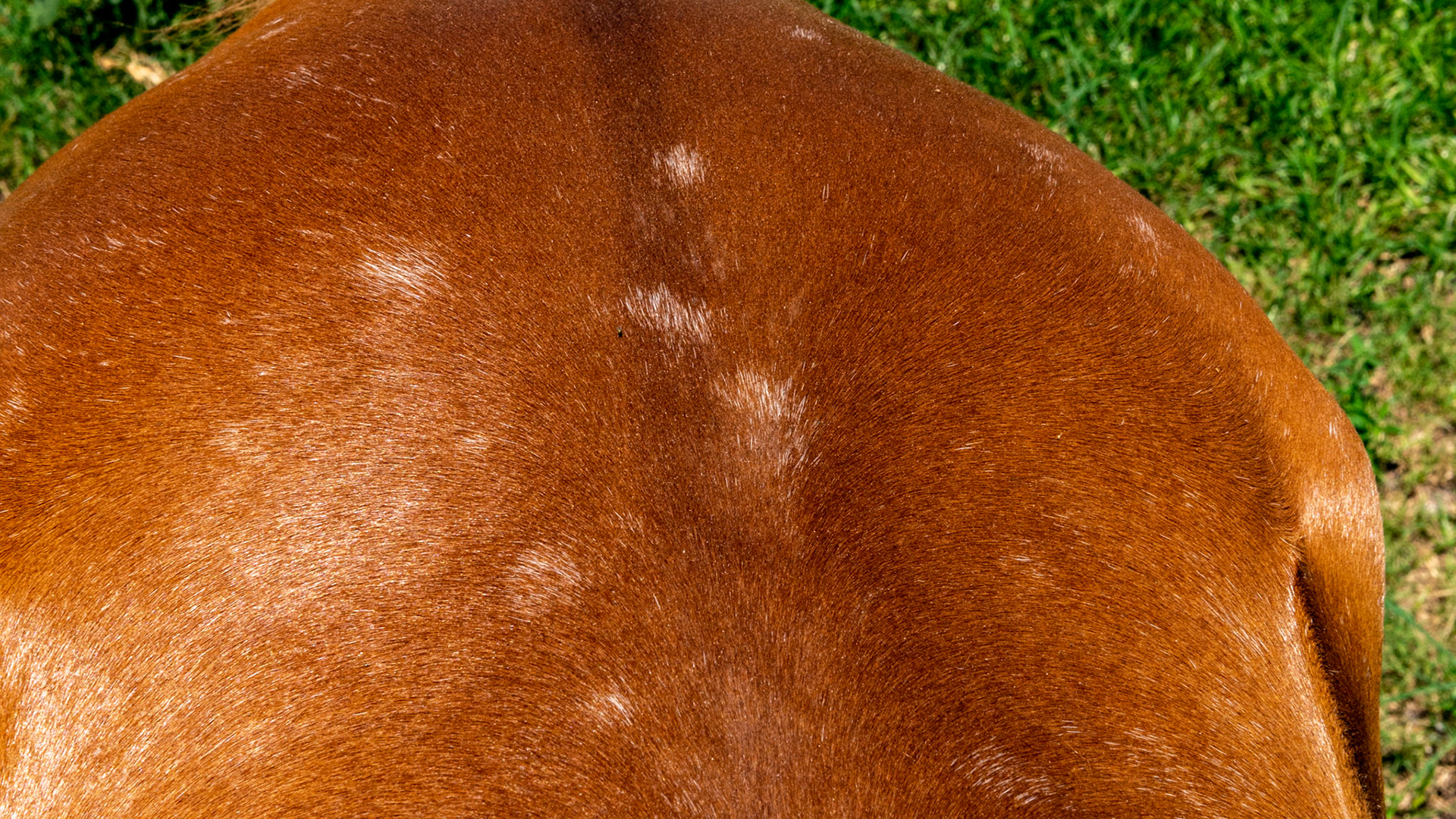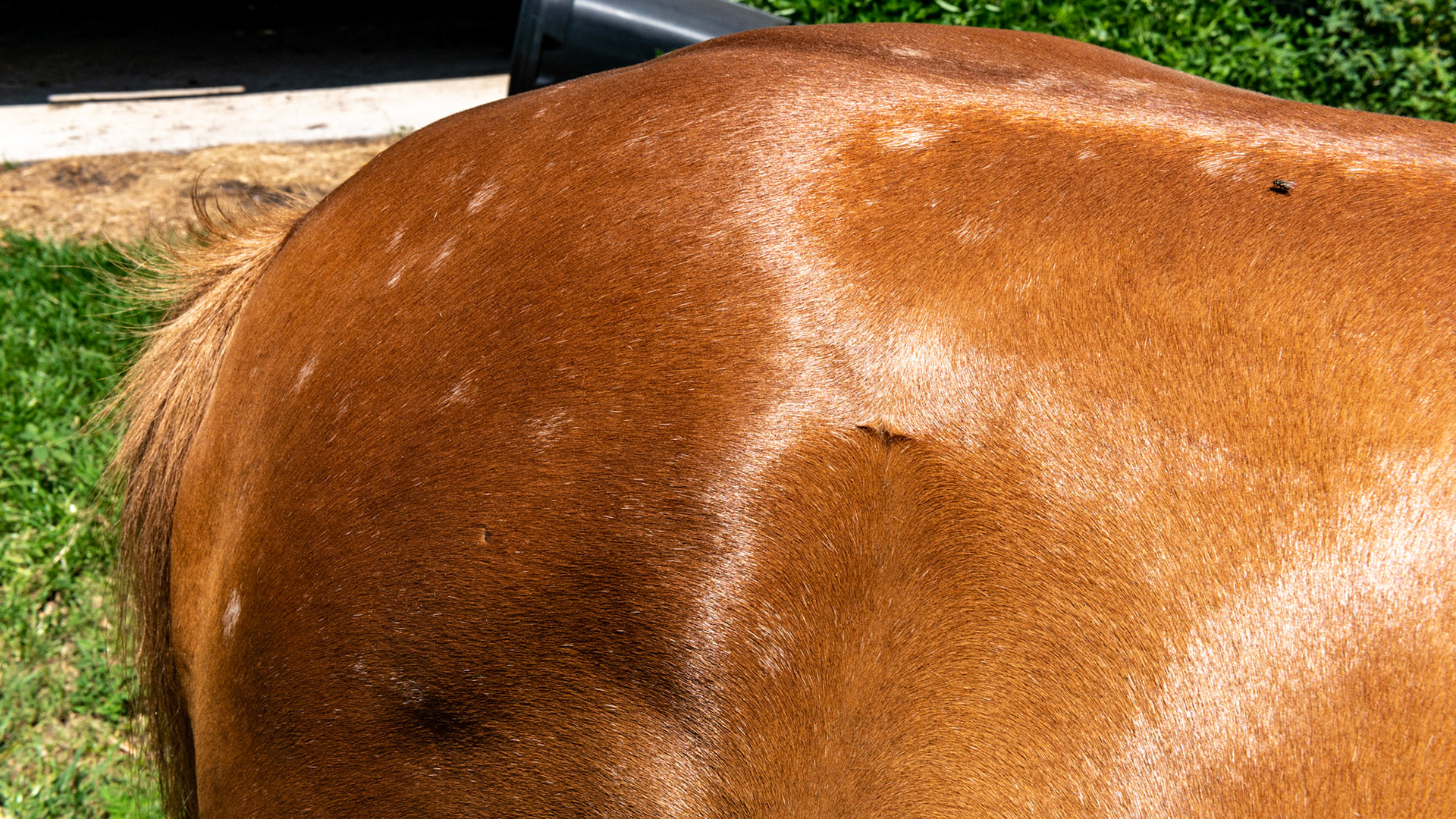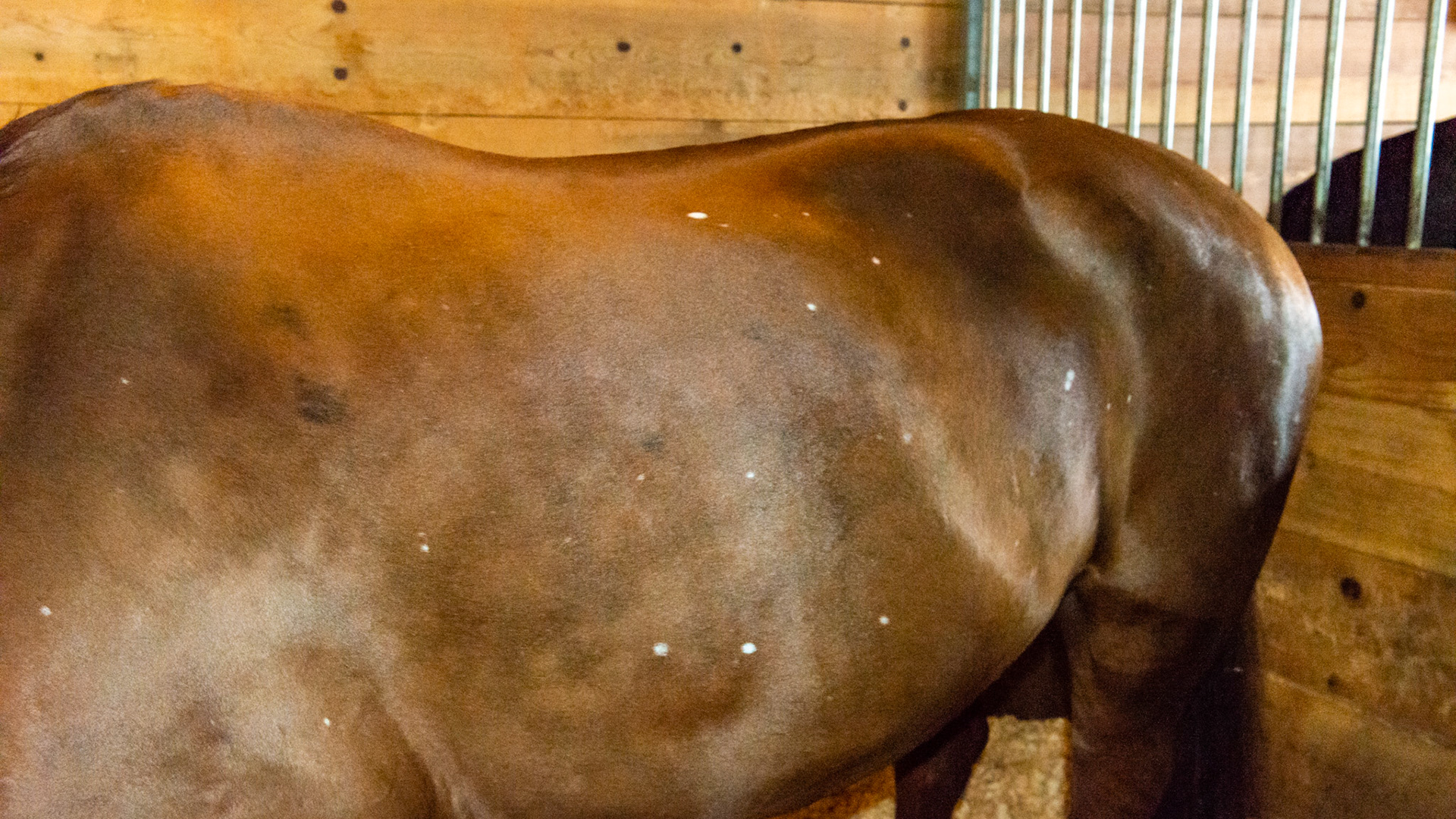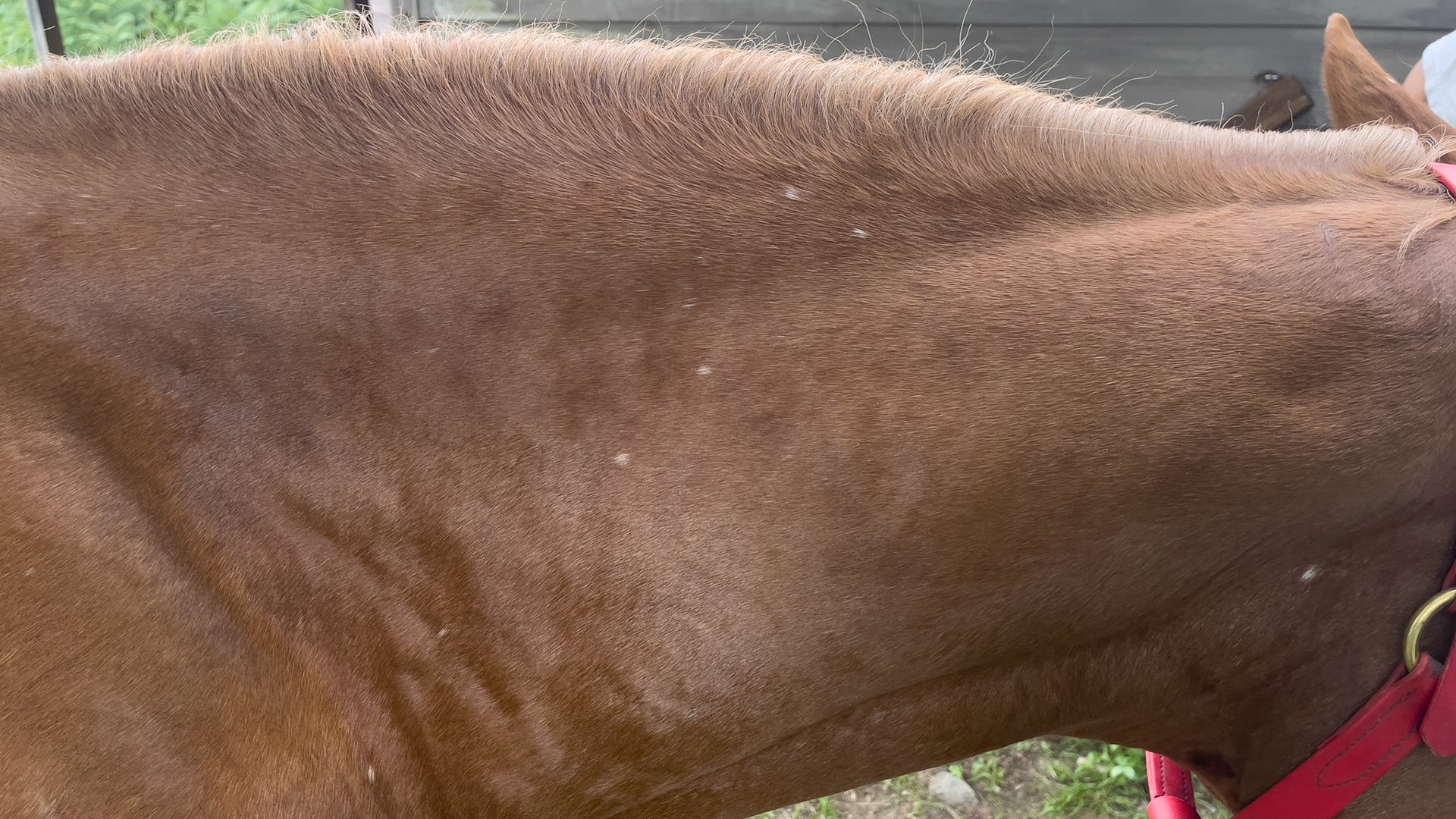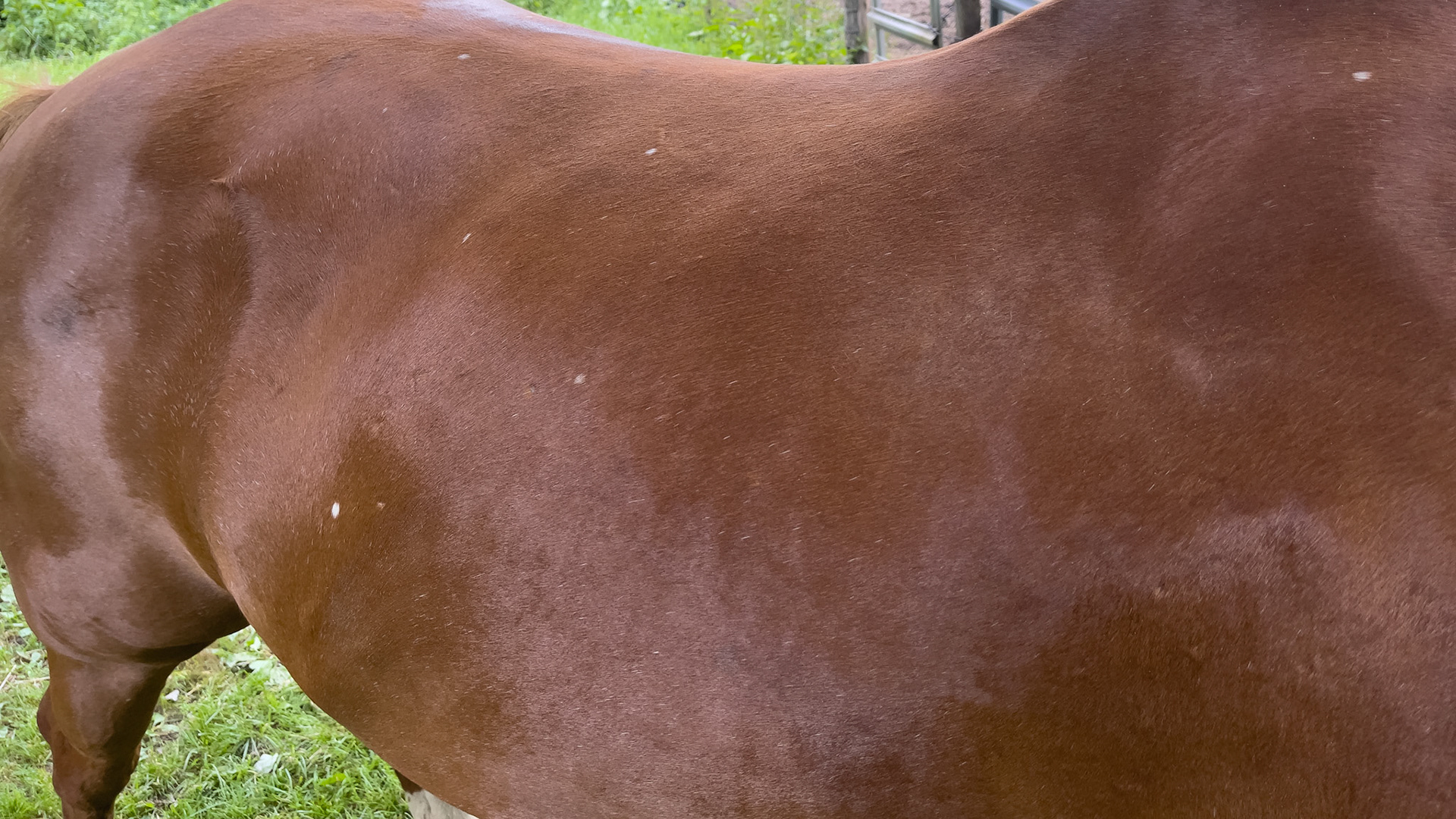
Depigmentation - This horse came to the farm 8 months ago (spring) with this loss of dark pigment. A fly mask was used immediately and the pink areas returned to black. Then about 4 weeks ago (September) the depigmentation occurred again. Some believe it is a mineral deficiency (manganese and zinc plus others) but there is no consistent cause or treatment. It does not bother the horse.

Depigmentation - This horse came to the farm 8 months ago (spring) with this loss of dark pigment. A fly mask was used immediately and the pink areas returned to black. Then about 4 weeks ago (September) the depigmentation occurred again. Some believe it is a mineral deficiency (manganese and zinc plus others) but there is no consistent cause or treatment. It does not bother the horse.

Depigmentation - This horse came to the farm 8 months ago (spring) with this loss of dark pigment. A fly mask was used immediately and the pink areas returned to black. Then about 4 weeks ago (September) the depigmentation occurred again. Some believe it is a mineral deficiency (manganese and zinc plus others) but there is no consistent cause or treatment. It does not bother the horse.

Depigmentation - This horse came to the farm 8 months ago (spring) with this loss of dark pigment. A fly mask was used immediately and the pink areas returned to black. Then about 4 weeks ago (September) the depigmentation occurred again. Some believe it is a mineral deficiency (manganese and zinc plus others) but there is no consistent cause or treatment. It does not bother the horse.

Depigmentation - This horse came to the farm 8 months ago (spring) with this loss of dark pigment. A fly mask was used immediately and the pink areas returned to black. Then about 4 weeks ago (September) the depigmentation occurred again. Some believe it is a mineral deficiency (manganese and zinc plus others) but there is no consistent cause or treatment. It does not bother the horse.

Spontaneous spotted leukotrichia. This horse was a pure chestnut on Saturday and had white spots throughout his hair coat on Sunday. Diagnosed at the University of Florida veterinary college, the cause is unknown. I read many years ago that spontaneous white spots in horses could be from a specific mineral deficiency, but there is no proof. If it was a mineral deficiency then how could this cooer “overnight?”

Spontaneous spotted leukotrichia. This horse was a pure chestnut on Saturday and had white spots throughout his hair coat on Sunday. Diagnosed at the University of Florida veterinary college, the cause is unknown. I read many years ago that spontaneous white spots in horses could be from a specific mineral deficiency, but there is no proof. If it was a mineral deficiency then how could this cooer “overnight?”

Spontaneous spotted leukotrichia. This horse was a pure chestnut on Saturday and had white spots throughout his hair coat on Sunday. Diagnosed at the University of Florida veterinary college, the cause is unknown. I read many years ago that spontaneous white spots in horses could be from a specific mineral deficiency, but there is no proof. If it was a mineral deficiency then how could this cooer “overnight?”

Leukotrichia seen in a horse with no history. The owners of horses with this disease usually report that the spots continually change. Because there is no reaction from the horse and that there is not a cause identified, this is a visual issue only for the owner. There is no cause and therefore there is no money to be made and no interest in finding a cure.
